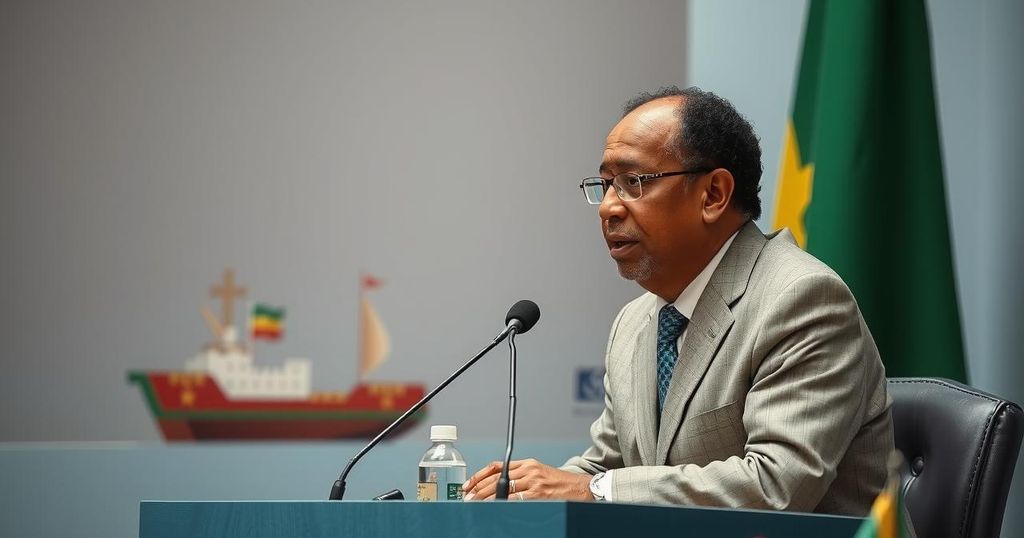Somalia’s Foreign Minister Ahmed Moalim Fiqi has denied reports that Somalia granted Ethiopia access to the Red Sea. He described such claims as unfounded and reaffirmed Somalia’s commitment to sovereignty. This denial follows the controversial Ankara Declaration, which aimed to ease tensions after Ethiopia’s MoU with Somaliland, inciting opposition from Eritrea and Egypt over regional stability concerns.
MOGADISHU, Somalia – Somalia’s Foreign Minister Ahmed Moalim Fiqi has categorically denied claims that Somalia has agreed to allow Ethiopia access to the Red Sea. He described these assertions as unfounded, emphasizing, “These baseless assertions lack any foundation. Somalia remains committed to protecting its sovereignty and ensuring transparency on national issues.” This denial comes in response to previous statements suggesting an agreement was reached amid ongoing diplomatic efforts led by Turkish President Recep Tayyip Erdoğan.
The controversy stems from the Ankara Declaration, brokered on December 11, 2024, which purportedly aimed to ease tensions between Somalia and Ethiopia following Ethiopia’s signing of a contentious Memorandum of Understanding with Somaliland on January 1, 2024. This MoU granted Ethiopia Red Sea access in exchange for Somaliland’s efforts to obtain international recognition as an independent state. The agreement established plans for technical committees to tackle maritime disputes, with resolutions expected by mid-2025.
However, the deal has been met with significant opposition, particularly from the Tripartite Alliance comprising Somalia, Eritrea, and Egypt. Critics argue that Ethiopia’s pursuit of Red Sea access poses a risk to regional stability. In light of this, Eritrean Foreign Ministry advisor Abdulkadir Idris remarked on BBC Somali, expressing concerns that the agreement undermines Somalia’s sovereignty. He articulated, “The agreement is hasty and poorly conceived,” cautioning that it could lead to diplomatic tensions within the region.
This issue highlights the complex diplomatic relations within the Horn of Africa, particularly concerning the interplay between Somalia, Ethiopia, Somaliland, Eritrea, and Egypt. Following Ethiopia’s engagement with Somaliland, fears arose regarding its access to the Red Sea and the implications for regional stability. The Ankara Declaration, aimed at alleviating tensions between Ethiopia and Somalia through Turkish mediation, has intensified scrutiny of Ethiopia’s ambitions in the area. The resistance from Eritrea and Egypt signifies a broader regional apprehension concerning Ethiopia’s growing influence and territorial aspirations in the Red Sea.
In summary, Somalia’s Foreign Minister has firmly rejected claims regarding Ethiopia’s access to the Red Sea, reaffirming Somalia’s commitment to its sovereignty amidst growing regional tensions. The Ankara Declaration and the subsequent Memorandum of Understanding with Somaliland have drawn criticism, particularly from Eritrea and Egypt, reflecting the complexity of diplomatic relations in the region and the need for cautious navigation of these sensitive issues.
Original Source: hornobserver.com






